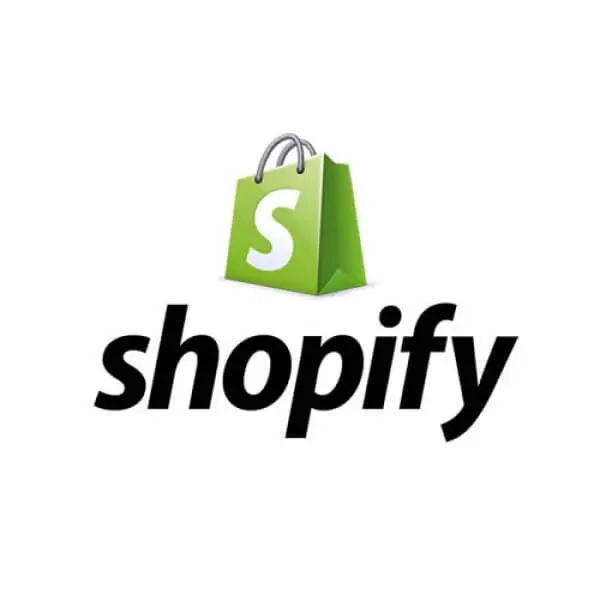Hostinger is a web hosting provider that offers a website builder with basic ecommerce functionalities.
Its platform caters more towards informational and business websites, providing a user-friendly experience for those looking to establish an online presence.
In contrast, Shopify is a dedicated ecommerce platform, designed to help businesses of all sizes create and manage their online stores.
Shopify’s focus is on providing an extensive suite of tools and features tailored specifically for ecommerce operations.
The key differences between Hostinger and Shopify lie in their core focus and target audience.
As we move forward, we will talk more about these two platforms.
Let’s begin.
Hostinger vs Shopify: The Ecommerce Experience
Ecommerce Themes & Templates
Shopify offers around 150 modern, responsive ecommerce themes, some of which are free, while others range from $170 to $380.
Hostinger Website Builder, on the other hand, provides over 50 ecommerce-specific templates out of its library of 140+ designs, covering a variety of styles and industries.
While Hostinger’s templates are mobile-friendly, they may not offer the same level of customization and advanced features as Shopify’s dedicated ecommerce themes.
Try Shopify free followed by first month at just $1. No credit card required. Limited Time Offer.
Product Page Customization
Shopify allows users to create product pages with customizable elements, such as titles, descriptions, and image galleries with zoom effects.
However, it limits the number of product options to three, totaling 100 unique variations per product. Shopify compensates for this by offering a wide range of apps and integrations to enhance product page functionality.
Hostinger’s Website Builder provides basic product page customization options, but it lacks the flexibility and advanced features available on Shopify.
Also Read: Shopify Free Trial
Payment Processing & Gateways
Shopify offers a robust payment processing solution, Shopify Payments, which charges transaction fees ranging from 2.9% + $0.30 for the Basic Shopify plan to lower rates for higher-tier plans.
Shopify also supports over 100 third-party payment gateways. You can check out the actual rates here.
Hostinger, as a web hosting platform, does not have a native payment gateway, but it does integrate with various payment providers, including PayPal, Stripe, and others, with transaction fees varying based on the chosen payment gateway.
Explore: Is Shopify Good For Dropshipping?
Shipping & Fulfillment Capabilities
Shopify’s shipping module seamlessly integrates with numerous shipping carriers, allowing you to access real-time shipping rates, print shipping labels, and track your orders with ease.
Furthermore, Shopify operates its own Fulfillment Network, providing warehousing and order fulfillment services to help you streamline your logistics operations.
This feature can be particularly advantageous for businesses looking to outsource their fulfillment processes and focus on other aspects of their ecommerce venture.
In contrast, Hostinger’s Website Builder offers more basic shipping features, enabling you to create shipping zones and options, but it lacks the advanced shipping and fulfillment functionalities found in Shopify’s comprehensive platform.
If you require a more sophisticated shipping and fulfillment solution, Shopify may be the better choice to support your ecommerce needs.
Inventory Management & Dropshipping
Shopify’s inventory management capabilities are designed to make it easier for merchants to track stock levels, set up restock notifications, and manage SKUs.
The level of control and visibility is crucial for businesses looking to streamline their order fulfillment and ensure they never run out of popular products.
In addition to its inventory management features, Shopify also integrates with a wide range of dropshipping apps, enabling sellers to offer products without the need to maintain physical inventory.
Try Shopify free followed by first month at just $1. No credit card required. Limited Time Offer.
This allows for a more flexible and scalable approach to ecommerce operations, as merchants can quickly add new products to their online stores without the burden of managing warehousing and logistics.
Hostinger’s Website Builder does not have built-in dropshipping features. However, it can support third-party dropshipping plugins and integrations when paired with a content management system like WordPress.
Despite this capability, the overall inventory management and dropshipping features on Hostinger are more limited compared to Shopify’s specialized ecommerce offerings.
SEO & Analytics
When it comes to search engine optimization (SEO) and analytics, both Shopify and Hostinger’s Website Builder offer robust features to help you optimize your online presence and track your website’s performance.
SEO
Shopify provides a range of SEO-focused tools, including the ability to edit meta descriptions, URLs, and image alt texts, as well as the generation of a sitemap to improve the discoverability of your online store.
Hostinger’s Website Builder also boasts built-in SEO optimization features, such as website speed optimization and sitemap generation, along with customizable SEO settings at the website and page levels.
While Shopify’s ecommerce-centric approach may give it an edge in certain SEO aspects, Hostinger’s website builder can be a more SEO-friendly choice for informational and business websites.
Also Read: Shopify vs Wix
Reporting & Analytics
Shopify offers comprehensive reporting and analytics tools, providing in-depth insights into various aspects of your online business, such as sales, customer behavior, and traffic sources.
The level of ecommerce-specific data can be invaluable for making informed decisions to grow your online presence.
Hostinger’s Website Builder also includes analytics and reporting features that are primarily focused on website performance metrics, like traffic sources and device usage, rather than the more extensive ecommerce-focused data found in Shopify’s platform.
Sales & Marketing Features
Shopify stands out with its extensive sales and marketing features that can help streamline your ecommerce operations.
One of the platform’s unique offerings is its Point of Sale (POS) system, which allows you to seamlessly integrate your online and offline sales channels.
The centralized system enables you to manage inventory, process payments, and track sales data across both digital and physical touchpoints.
In addition to the POS system, Shopify provides a suite of specialized sales and marketing tools to enhance your business’s performance.
These include abandoned cart recovery, which helps you re-engage customers who have left items in their carts without completing a purchase.
Shopify also offers multi-channel selling capabilities, allowing you to expand your reach by selling on various platforms, such as social media, marketplaces, and your own online store.
Shopify’s own Fulfillment Network, gift cards, discount codes, and a built-in email marketing tool are further examples of the platform’s comprehensive sales and marketing features.
These specialized tools make Shopify a more holistic solution for businesses looking to streamline their sales and marketing efforts, ultimately driving more revenue and growth for your ecommerce operation.
Hostinger is found wanting in this area.
App Integrations & Third-Party Ecosystems
Shopify’s app marketplace is a true powerhouse, boasting over 8,000 apps and integrations that allow businesses to tailor their online stores with a vast array of marketing, inventory management, shipping, and customer service tools.
The extensive ecosystem gives Shopify a distinct advantage in terms of the flexibility and scalability it can provide for your ecommerce operations.
Whether you need to enhance your product listings, streamline your order fulfillment, or strengthen your customer engagement, Shopify’s app store has a solution to fit your needs.
Try Shopify free followed by first month at just $1. No credit card required. Limited Time Offer.
While Hostinger’s Website Builder does offer a variety of app integrations, the selection is more limited compared to Shopify’s robust marketplace.
Additionally, Hostinger’s reliance on third-party integrations and content management systems like WordPress can make the setup and management process more complex for non-technical users.
This may pose a challenge for businesses seeking a more seamless, out-of-the-box ecommerce experience.
Customer Support & Resources
When it comes to customer support and resources, both Hostinger and Shopify offer a range of options to assist their users.
Shopify is widely recognized for its robust customer support, with a dedicated team available 24 hours a day, 7 days a week to help merchants with any questions or issues they may encounter.
Hostinger also provides reliable customer support, but the level of expertise and responsiveness may vary depending on the specific plan you’re subscribed to and the support channel you choose to use, such as email or live chat.
Both platforms also offer comprehensive knowledge base articles, tutorials, and other educational resources to help you navigate their respective platforms.
Also Read: Printify vs Shopify
Pricing
When it comes to the pricing structures of Hostinger and Shopify, there are some notable differences.
Subscription Plans
Shopify offers a range of subscription plans, with prices starting at $29 per month for the Basic Shopify plan and going up to $2,300 per month for the Plus plan.
This provides businesses with a variety of options to choose from, depending on their specific needs and budget.
Hostinger, as a web hosting provider, offers website builder plans starting at $2.99 per month, making it a more affordable option for those on a tighter budget.
This can be particularly appealing for individuals or small businesses looking to establish an online presence without the need for extensive ecommerce features.
Transaction Fees
Shopify charges transaction fees ranging from 0.5% to 2% per transaction, depending on the subscription plan. Shopify Payments, the platform’s integrated payment system, can help reduce these fees.
In contrast, Hostinger, as a web hosting service, does not have a native payment gateway, so transaction fees will vary depending on the third-party payment processor used, typically ranging from 2.59% to 3.09% plus a fixed amount.
Try Shopify free followed by first month at just $1. No credit card required. Limited Time Offer.
Conclusion
Shopify emerges as the superior option for businesses seeking a comprehensive, feature-rich ecommerce platform with advanced sales and marketing tools, robust inventory management, and a vast ecosystem of integrations.
Contrary to Shopify, Hostinger’s Website Builder is a more user-friendly and cost-effective solution for individuals and small businesses focused on building informational or basic ecommerce websites.
While it may lack the advanced capabilities of Shopify, Hostinger’s platform can be a suitable choice for those on a tighter budget or with simpler ecommerce requirements.
Now that you know what offers what, you should be able to determine which platform, Hostinger or Shopify, is the best fit for your ecommerce endeavors.















